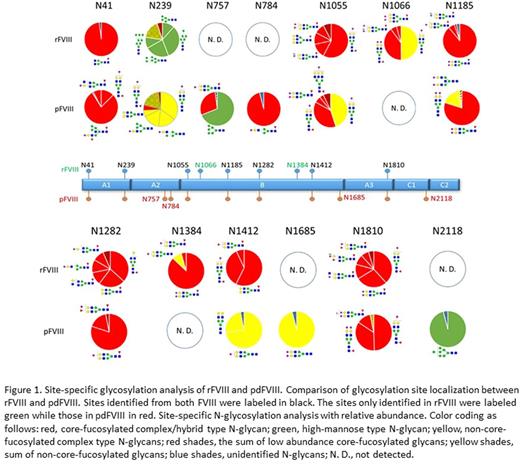Abstract
Human coagulation factor VIII (FVIII) is a key co-factor in the coagulation pathway. Its functional deficiency is directly linked to Hemophilia A. Both human plasma-derived (pdFVIII) and recombinant FVIII (rFVIII) have been developed as effective reagents for treating the bleeding episodes. However, it remains debatable if these two pharmaceutical products are equivalent in clinical efficiency and safety profile despite of their identical amino acid sequences. Several studies have indicated that rFVIII comes with higher risk of inhibitor antibody development. In this report, we systemically analyzed the site-specific pattern of pdFVIII and rFVIII in glycosylation. A total of 61 N-glycan structures or isomers and 31 O-glycan compositions were identified. The likely immunogenic epitope, N-glycolylneuraminic acid (Neu5Gc), was absent in either recombinant or plasma-derived FVIII. However, potentially immunogenic glycopeptides, including Alpha-Gal epitope, has been identified in rFVIII. The glycosylation site localization between rFVIII and pdFVIII show significant divergence. The specific differences in glycosylation pattern of pdFVIII and rFVIII may be one of the important biological basis leading to their immunological disparity in human patients.
No relevant conflicts of interest to declare.
Author notes
Asterisk with author names denotes non-ASH members.


This feature is available to Subscribers Only
Sign In or Create an Account Close Modal